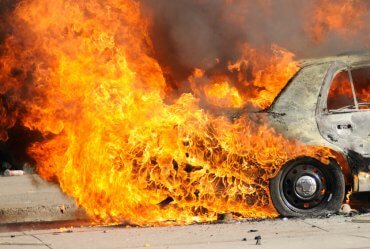Energy drinks are dangerous, and if ever there’s been an actual “shocking teen trend”, it’s come in the form of these sugary, caffeine-packed drinks. Usually consumed to help teenagers and adults alike power through late-night work or gaming sessions, they can lead to heart damage, anxiety, sleep deprivation, and nervousness, but in moderation, they don’t cause enough damage to alarm most people. The effects are temporary and, unless several are consumed in a sitting, mild, but in the hands of smaller children, these potent beverages can pose a real threat – especially since some contain alcohol and taste like soda.
The penalty for no health insurance can be high, so incidents like these are a textbook example of why health insurance is important. Countless insurance providers will give free health insurance quotes, and Obamacare insurance is an option that shouldn’t be ignored.
Between October 2010 and September 2013, United States poison control centers across America have received more than 5,000 calls about energy drinks, and approximately 40% of those were concerning a child under age 6 who was exhibiting distress or strange behavior after consuming one of these beverages without a parent’s knowledge. The large percentage of children under age 6 consuming these drinks is concerning to medical professionals, and the fact that non-alcoholic energy drinks are sold without age limitations means that the problem could get worse.
Of the 5,156 reported cases:
• 42% of those involving alcoholic energy drinks had a moderate to severe outcome
• 19% of cases involving non-alcoholic energy drinks led to moderate to sever damage.
• Of all of the cases that had severe outcomes, 57% of cases reported abnormal heart rhythm or other cardiovascular ailments.
• 55% of cases reported neurological disorders including seizures.
The study was conducted by Stephen Lipshultz, M.D., chair of pediatrics at Wayne State University and pediatrician-in-chef at Children’s Hospital of Michigan in Detroit. “Energy drinks have no place in pediatric diets,” Lipshultz said, “And anyone with underlying cardiac, neurologic or other significant medical conditions should check with their health care provider to make sure it’s safe to consume energy drinks.” He also made it clear that he is not a toxicologist, but recent trends have raised concerns about his own patients and children in general.
How do you feel about the increasing prevalence of energy drinks in youth culture? Do you think they need to be regulated, and if so, how? Let us know in the comments section below.



